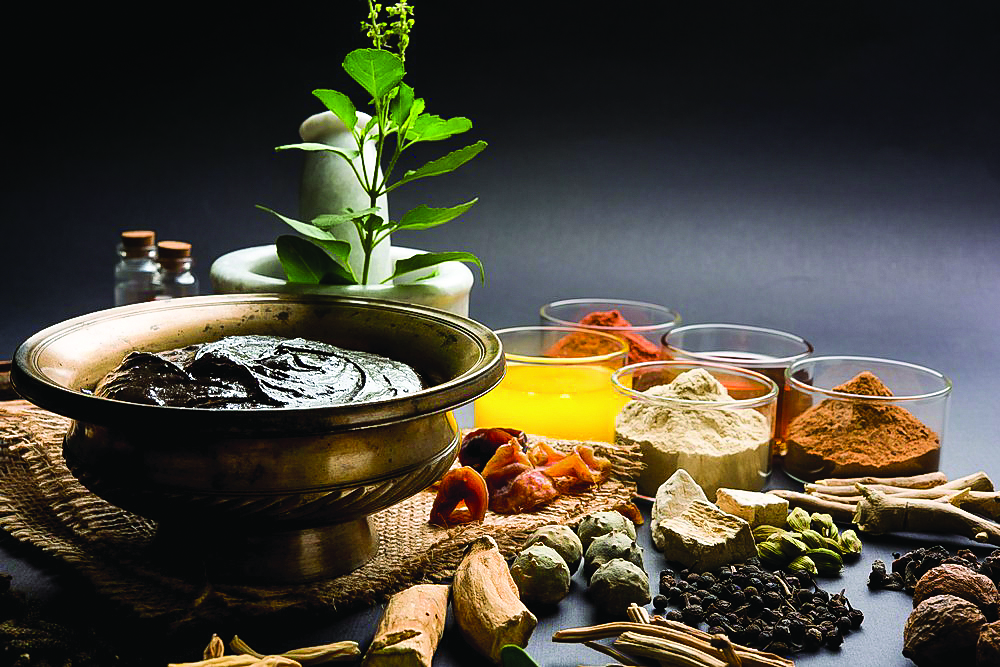
India has an extensive record of using organic healing methods that have proven effective, as it is the home to Ayurveda. These traditional beliefs emphasise preserving harmony between the body, mind, and spirit in order to achieve healthy living. Rebuilding a connection with these tried-and-true formulations is more important than ever in order to restore our gut health, strengthen our immune system, and improve our general well-being since our modern lifestyles expose us to a variety of health concerns. With strong, natural remedies available, why should we risk our health for sugary, gummy drinks that are sold as happiness and coolness? Here are some Ayurvedic tips for improving your health in a natural and effective manner.
1. Balanced Diet and Digestive Health
Ayurveda emphasises the importance of a balanced diet tailored to your dosha (body type) to maintain and restore health. Here’s how you can support your digestive fire (Agni):
=Dosha-specific diet: Understanding your dosha (Vata, Pitta, or Kapha) is crucial. Vata types benefit from warm, moist foods; Pitta types should consume cooling, hydrating foods; and Kapha types thrive on light, dry foods.
=Regular meal times: Eating at consistent times helps regulate digestion. Avoid skipping meals or irregular eating patterns.
=Mindful eating: Chew your food thoroughly, eat slowly, and avoid distractions to improve digestion.
=Digestive spices: Incorporate spices like ginger, cumin, coriander, fennel, and turmeric to enhance digestion and nutrient absorption.
2. Probiotics and Prebiotics
Maintaining a healthy balance of gut flora is essential for immunity and overall health. Ayurveda recommends natural sources of probiotics and prebiotics:
=Probiotic-rich foods: Include yogurt, buttermilk, and fermented foods like pickles and kanji (a fermented carrot drink) in your diet.
=Prebiotic foods: Consume garlic, onions, bananas, and asparagus to nourish beneficial gut bacteria.
3. Herbal Remedies
Ayurveda utilises various herbs to promote gut health and boost immunity:
=Triphala: A blend of three fruits (Amalaki, Bibhitaki, and Haritaki), Triphala is known for its digestive benefits and colon cleansing properties.
=Ashwagandha: An adaptogen that reduces stress and enhances immunity.
=Neem and Tulsi: These herbs have antimicrobial properties that support immune function and gut health.
4. Detoxification (Panchakarma)
Panchakarma is a comprehensive detoxification process in Ayurveda designed to remove toxins (ama) from the body, enhancing gut health and overall well-being. It includes:
=Vamana (therapeutic vomiting): Clears toxins from the respiratory and gastrointestinal tract.
=Virechana (purgation): Cleanses the bowels, eliminating toxins from the liver and intestines.
=Basti (enema): Removes toxins from the colon and improves gut health.
5. Hydration and Herbal Teas
Proper hydration is essential for digestion and overall health. Ayurvedic herbal teas can further support this:
=Cumin-Coriander-Fennel (CCF) Tea: This classic Ayurvedic blend supports digestion, reduces bloating, and detoxifies the body.
=Recipe: Boil 1 teaspoon each of cumin, coriander, and fennel seeds in 4 cups of water for 5-10 minutes. Strain and drink warm.
=Ginger Tea: Known for its digestive and anti-inflammatory properties, ginger tea can alleviate nausea, improve digestion, and enhance nutrient absorption.
=Recipe: Boil fresh ginger slices in water for 10 minutes. Add honey and lemon for extra flavor and benefits.
6. Lifestyle Practices
Ayurveda advocates for a balanced lifestyle to maintain gut health and well-being:
=Yoga and Pranayama: Regular practice of yoga and breathing exercises (pranayama) improves digestion, reduces stress, and boosts immunity.
=Adequate Sleep: Quality sleep is crucial for the body’s repair and rejuvenation processes, including maintaining a healthy gut.
=Stress Management: Techniques such as meditation, mindfulness, and spending time in nature help manage stress, which can negatively impact gut health.
7. Aligning with Natural Rhythms
Ayurveda emphasizes living in harmony with nature’s cycles:
=Seasonal routines (Ritucharya): Adjust your diet and lifestyle according to the season to maintain balance. For example, eat warming foods in winter and cooling foods in summer.
=Daily routines (Dinacharya): Establish a daily routine with regular meal times, exercise, and rest to support your body’s natural rhythms.
Conclusion
In a world full of artificially sweetened beverages promising instant health benefits, Ayurveda provides a tried-and-true path to long-term wellness. We may improve our general well-being, strengthen our immune system, and improve our gut health through using Ayurvedic principles and alternative treatments. We are the nation of Ayurveda, and these traditional practices are our legacy. It is time to go back to our roots and fully utilise the power of Ayurveda. Let’s put our health first by choosing natural, practical solutions over fad-driven, but ultimately harmful ones.
The author is the Founder and CEO of TeaFit.